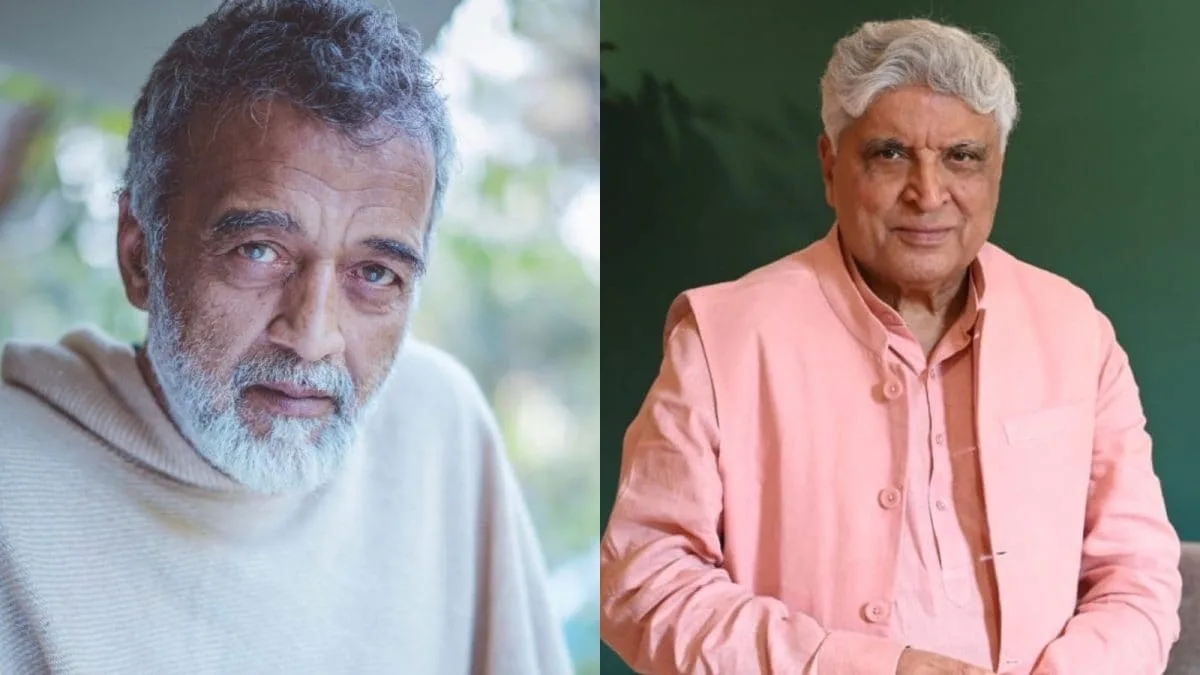Singer-songwriter Lucky Ali has publicly addressed the backlash after targeting veteran lyricist and screenwriter Javed Akhtar in a scathing social-media post. The controversy began when a video resurfaced showing Akhtar discussing Hindu-Muslim dynamics, and in response, Ali tweeted a remark calling him “never original and ugly as f**k.”
Days later, Ali attempted to walk back his words with what he described as a “mistaken communique.” His apology read: “What I meant was that arrogance is ugly… monsters may have feelings too and I apologise if I hurt anyone’s monstrosity…”
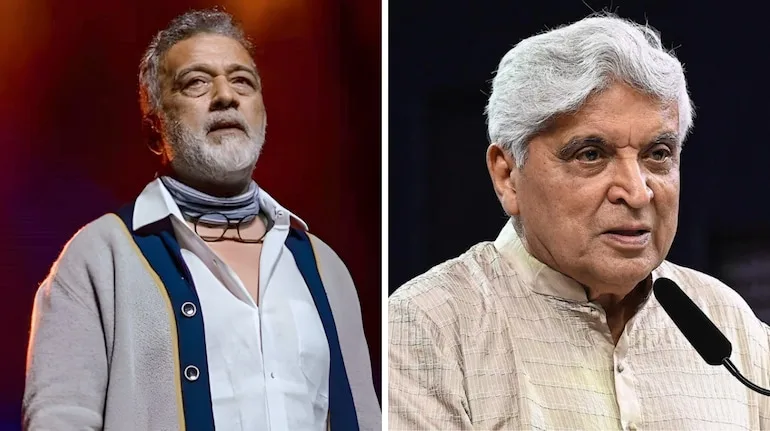
The initial trigger for the drama was a viral clip of Javed Akhtar. In the footage, he referred to a scene in the classic film Sholay and went on to say, “Don’t become like Muslims… You are becoming like Muslims. It’s a tragedy.” Ali had responded sharply: “Don’t become like Javed Akhtar, never original and ugly as f**k…” his post read.
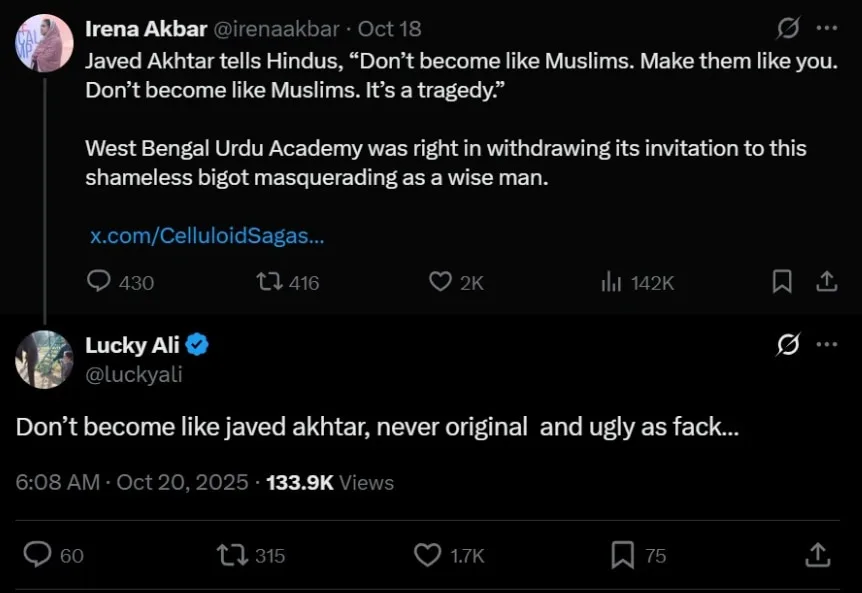
View this post on Instagram
Ali’s “apology” arrived in a second post on X (formerly Twitter) where he clarified his intent: “What I meant was that arrogance is ugly… it was a mistaken communique on my part…” While he acknowledged causing hurt, his tone retained a confrontational edge, especially with his line, “monsters may have feelings too…”
what I meant was that arrogance is ugly…. it was a mistaken communique’ on my part…. monsters may have feelings too and I apologise if I hurt anyones monstrosity…….
— Lucky Ali (@luckyali) October 22, 2025
While Ali’s remarks were directed at Akhtar’s words, many social-media users found his language unduly harsh and personal. Others pointed to the original clip’s ambiguous provenance, noting that the quote attributed to Akhtar could not be independently verified.
This episode highlights a charged dynamic in Indian public discourse—where past statements, resurfaced online, become rapid-fire catalysts for heated reactions and celebrity call-outs. For Ali, the moment seems to be a reminder of both the power and peril of public commentary. In his apology, he suggested he was addressing “arrogance” rather than appearance, yet the blunt wording of his original post continues to raise questions about tone, intent and consequence.
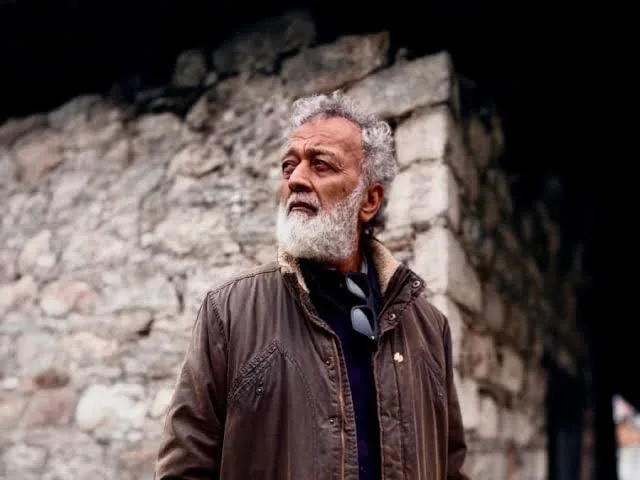
Javed Akhtar himself has not publicly responded to Ali’s remarks or the apology as yet. Known for his outspoken views on social issues, Akhtar has previously described receiving threats and abuse over his public statements.
For his part, Lucky Ali has been noted for stirring public debate recently—this is not his first controversial comment. In 2023, he faced criticism over Quranic references and made another public apology.
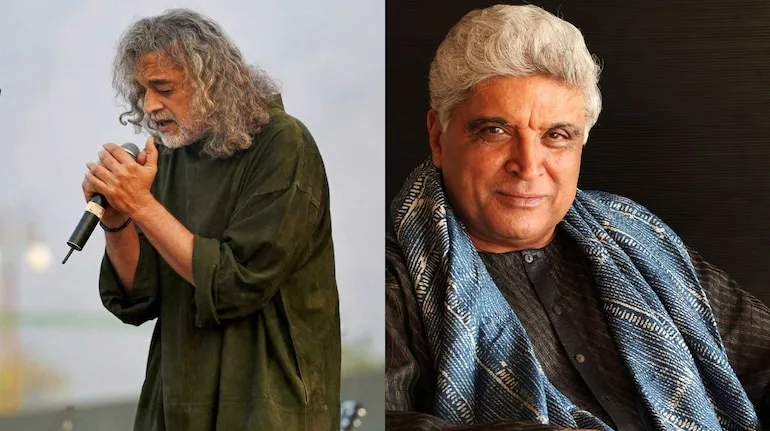
At its core, the incident underscores how a single viral clip can spark widespread outrage, amplify past comments, and trigger a cascade of online reactions—often involving public figures, celebrities, and broader cultural or communal reference points. Ali’s attempt at an apology shows an awareness of crossed boundaries, even as his language leaves room for debate over whether the correction was sincere or simply a strategic retreat.
As the dust settles, what remains is another example of the public-sphere tightrope: balancing freedom of expression, critique of viewpoints and the risk of personal attacks. Whether this becomes a broader turning point in Ali’s public speech or simply another internet flare-up may depend on how the conversation evolves—and whether both parties choose to engage further.

